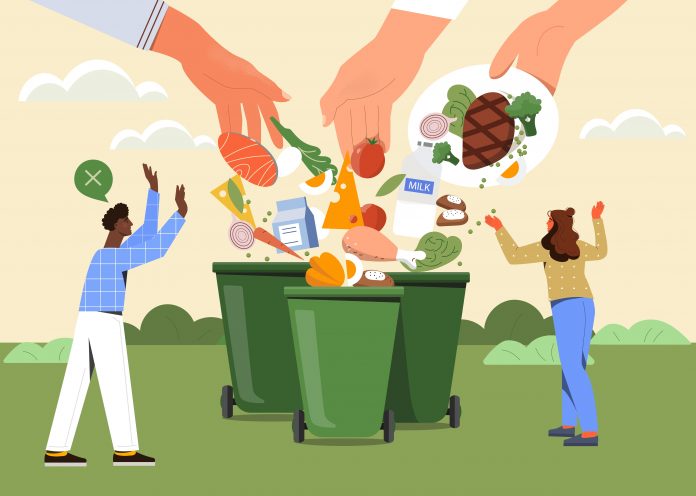End Food Waste Australia welcomes the recommendations for accelerated nation-wide food waste action in the report by the Senate Select Committee on Supermarket Prices, including date-labelling reform, product specification review and more transparent food waste reporting.
End Food Waste Australia is the lead agency coordinating Australia’s response to the goal of halving food waste by 2030 and the delivery of Australia’s National Food Waste Strategy. End Food Waste Australia has research and industry action programs underway to address these recommendations but says more industry and government investment and action is required.
Chief Executive Officer Dr Steven Lapidge says the Senate inquiry into grocery prices has identified that business practices can have an impact on food waste in the upstream supply chain.
“Food waste costs Australia $36.6 billion a year. Annually 7.6 million tonnes of food is wasted – the equivalent of throwing away 29 million meals a day, enough to provide lunch to every Australian on a daily basis,” Dr Lapidge said.
“Food waste action provides a significant opportunity to address the rising costs of living, remove a significant amount of emissions from the food system, help feed millions of food insecure Australians and make the wider food industry and supply chain fairer, more profitable, resilient and sustainable.”
End Food Waste Australia has work underway to address these recommendations including a National Date Labelling and Food Storage Advice research project being undertaken by the End Food Waste Cooperative Research Centre.
“Food date labels and product storage advice can be confusing, inconsistent and contribute to food waste with our research finding only 51% of Australian households understand the meaning of both use by and best before dates,” Dr Lapidge said.
“Our research is being undertaken to understand consumers’ perceptions of existing date labelling practices, to inform discussions with statutory bodies and the food industry and improve the consistency with which date labels are applied to different food products. This is to support the practical changes required to reduce consumer confusion and help them in their efforts to reduce the amount of food that they waste at home, saving them money in the process.
“This is important research to determine the best approaches moving forward, but then we need government, statutory bodies and the food industry to adopt our research findings and recommendations,” he said.
End Food Waste Australia has also developed a first-of-its-kind Australian plan to tackle farm to retail fresh produce waste through its recently published Horticulture Sector Food Waste Action Plan, which supports the inquiry’s recommendations for a review of product specifications.
“During our extensive industry consultation, we heard that product specifications are contributing to food waste at all stages of the food supply chain,” Dr Lapidge said.
“A multi-stakeholder review of product specifications is a critical next step in quantifying the impact this is having on food waste and, importantly, ensuring that recommendations developed and implemented in a way that improves crop utilisation and is supported by consumer awareness and acceptance to reduce food waste without pushing it to other parts of the supply chain.”
End Food Waste Australia also leads the Australian Food Pact, a voluntary agreement for food businesses to reduce food waste in their operations and collaboratively across the supply chain. The Australian Food Pact includes the framework for measuring, reducing and reporting of food waste.
“Through the Australian Food Pact, retailers are actively building their capability to report food waste volumes and better understand the root causes of food waste and the most effective approaches to reducing it,” Dr Lapidge said.
“Food waste measurement and reporting is an important first step in identifying causes of food waste and highlighting prevention, reduction and donation opportunities – such as maximising donation to food rescue organisations.”
End Food Waste Australia partners with more than 100 organisations and has research and programs to drive industry action underway to support the inquiry recommendations to accelerate food waste reduction but maximising the opportunities that are emerging from this work will require further investment from industry and governments.
“Tackling Australia’s 7.6 million tonnes of food waste each year requires systemic change and whole of government and food system support,” Dr Lapidge said.
“End Food Waste Australia welcomes further support, investment and collaboration from industry and governments to successfully implement food system reforms around date labelling, product specifications and food waste reporting to ultimately reduce food waste, fight food insecurity, improve industry productivity and mitigate cost of living pressures for all Australians.”



